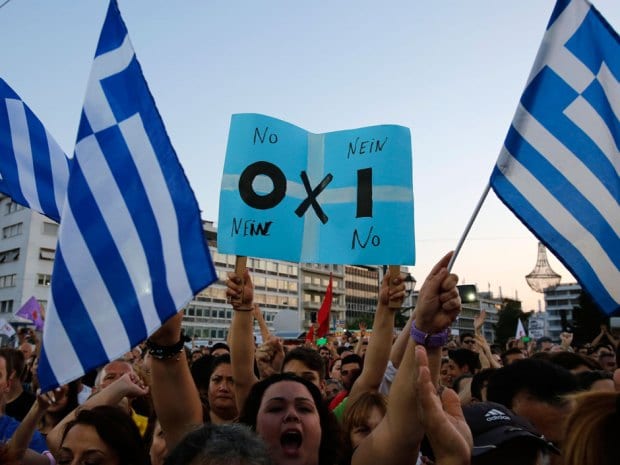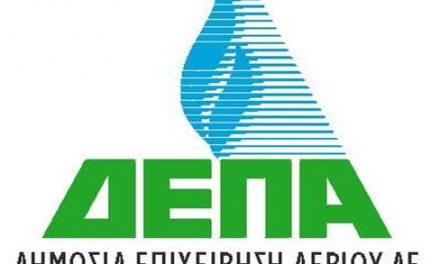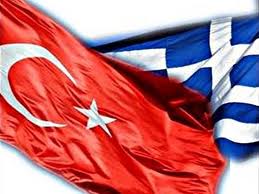By AUGUSTINE ZENAKOS, EuObserver
On 19 May, a mob assaulted the mayor of Thessaloniki, Yiannis Boutaris, during a public ceremony for the Day of the Pontic Genocide.
The incident began with shouts and insults: “Go away! We don’t want you here! Leave! Dirty fag! Dirty Jew! You anti-Greek! You Skopjean! You dirty Turk! Traitor! You should hang!”
Then, several people, including some who wore the emblems of the Pontic associations that organised the ceremony, started pushing the mayor.
Others started throwing plastic bottles and various objects at him.
His escorts tried to spirit him away, but the crowd followed him all the way to his car. People punched him on the head. One kicked him in the stomach.
When he reached his car, one man kicked the door in and another punched through the back window. As the car sped away, people started clapping and cheering.
This is hardly the first assault of its kind.
Throughout these last years of the financial crisis in Greece, there have been several incidents where angry crowds have verbally or physically assaulted politicians or members of the press.
Invariably, these assaults targeted public figures that were considered to be supporters of austerity policies imposed by the troika (European Commission, European Central Bank and International Monetary Fund).
Some high-profile commentators have described such assaults as motivated by an extreme-right ideology and have made a point of connecting them to Golden Dawn, Greece’s notorious neo-Nazi party, whose members are currently on trial for murder and other grave offences.
No longer just Golden Dawn
Although members of Golden Dawn have demonstrated abusive behaviour against politicians and journalists, such a direct link to Golden Dawn’s organised violence seems spurious: there is no evidence to support any connection between assaults by ordinary people or demonstrators and serious violence by Golden Dawn’s bands of ‘storm-troopers’.
It would be more accurate to see these sporadic ‘angry crowd’ assaults in the context of a quasi-populist ‘anti-elite’ wave that has permeated Greek political life throughout the years of crisis, which was triggered by the break-up of social bonds and which never made the leap to extreme-right ideology, much less organised fascist action.
Unsavoury though they were, such assaults did not fall within the realm of the extreme-right.
This is, however, what makes the attack on Boutaris exceptionally alarming.
Boutaris is a supporter of austerity policies and the bailout program. But that is not why he was assaulted.
As is evident from the type of abuse that was hurled against him, he was assaulted because he is liberal, anti-nationalist, anti-racist and a supporter of LGBT rights.
Boutaris has actively promoted Thessaloniki as an important city not just in Greek, but also in Turkish and Jewish history.
He has maintained that Turkish tourists should be encouraged to visit the birthplace of Kemal Ataturk.
He has also promoted the founding of a Holocaust Museum in Thessaloniki, in memory of the city’s Jewish population that was murdered by the Nazis.
Moreover, he has often spoken in favour of a solution to the naming dispute with the Republic of Macedonia. And he has offered the municipality’s auspices to the annual Gay Pride parade.
So, what appears here – perhaps for the first time in such a direct way – is a link between an assault against a public figure and the undisputed ideological premises of the extreme-right.
This, naturally, is not happening in a vacuum.
Virulent nationalism in Greece has been stirred up in the context of the renewed negotiations with Macedonia. Recent attempts by the government to address the inequalities suffered by LGBT persons have also been met with a reactionary backlash.
A highly-polarised public discussion on these issues has largely displaced the previously ubiquitous clashes over the austerity program, perhaps because so-called ‘national issues’ and ‘values’ are now perceived by many as areas where one can salvage a sense of national pride.
Regrettably, officials both in the government coalition and in the opposition are encouraging such perceptions.
Panos Kammenos, the defence minister and also the leader of Independent Greeks, the junior government coalition partner, has resisted and spoken out against a compromise with Macedonia, as well as new laws that recognise LGBT rights.
The majority of his party agrees with him, and so do some MPs of Syriza, the senior coalition partner.
Leaders and officials of New Democracy, the main opposition, have voiced similar opinions, and are speaking in an increasingly reactionary tone, despite the self-confessed liberalism of their leader, Kyriakos Mitsotakis.
The toxic climate is further exacerbated through statements by prominent Greek Orthodox priests, who are always a factor in Greek political life.
Whatever the expediencies of political tactics, as calculated by those who are systematically rousing reactionary sentiment, perhaps this historical lesson should be remembered: propagandising an extreme right-wing agenda of nationalism and intolerance to a vast pool of people disaffected by crisis and recession is a very bad idea.
Augustine Zenakos is a journalist based in Athens



















